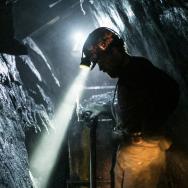Amid mounting evidence that climate change threatens current and future generations, Climate Vault, a nonprofit founded at the University of Chicago by a team led by economist Michael Greenstone, today unveiled a new solution for carbon reduction using government-regulated markets.
Climate Vault’s innovative solution will shorten the timeline for individuals and organizations seeking to reduce their emissions. Its mission is to significantly reduce carbon dioxide, one of the leading causes of climate change, while supporting the innovation in carbon removal technologies designed to eliminate historical CO2.
Climate Vault’s approach leverages the power of government-regulated compliance markets by purchasing and “vaulting” carbon permits, preventing polluters from using them. In addition, Climate Vault will help create the world’s first ecosystem for carbon dioxide removal (CDR) technologies by providing grants that spur innovation in those technologies to help make them viable and cost effective—encouraging a renewed commitment to environmental, social and governance (ESG) investing.
“Our response to the climate challenge will define our generation,” said Greenstone, co-founder of Climate Vault and the Milton Friedman Distinguished Service Professor in Economics at the University of Chicago. “Climate Vault provides a unique way for supporters, both individuals and organizations, to get the biggest carbon reduction per dollar—whether it be through matching their own footprint or truly making their investment portfolios ESG-forward. And in so doing, supporters can jumpstart the innovation that our children and the planet need. It is very much part of the University of Chicago’s long tradition of developing ideas that help to solve real-world social problems.”
Greenstone previously served as the chief economist for President Barack Obama’s Council of Economic Advisers, where he co-led the development of the United States government’s social cost of carbon.
“UChicago recently increased its greenhouse gas reduction goals for the current decade, focused on areas where we can demonstrate a positive financial return on investment, while simultaneously reducing our campus emissions,” said Ivan Samstein, vice president and chief financial officer at the University of Chicago. “Climate Vault will help us create a low cost off-campus benchmark to evaluate initiatives that may further reduce our greenhouse gas emissions and is an important piece of our overall emission reduction efforts. We are proud to partner with Climate Vault as a means within our broader portfolio to continue our efforts to dramatically reduce our carbon footprint.”
Greenstone and a team of leaders developed the vision and model for Climate Vault, with foundational support from the University of Chicago, as part of the university’s path to carbon neutrality. The founders also include Don Wilson, president & CEO of the trading firm DRW; Bala Srinivasan, senior advisor to the president at the University of Chicago; and Andrew Dailey, managing director of MGI Research.
“It’s been incredibly rewarding to develop market-driven approaches to spur innovation to mitigate one of today’s most pressing problems: climate change,” said Wilson. “Climate Vault enables entities to become carbon neutral today in a regulated, transparent manner. As we vault credits, we also support innovators to develop carbon capture technologies with grants. This full cycle approach is a differentiator and is something I am particularly enthusiastic about.”
To foster the market for new and tangible carbon removal technologies, Climate Vault convened a technology experts chamber to assess, evaluate, and measure impact. The chamber is chaired by former U.S. Secretary of Energy Ernest Moniz, now president of the Energy Futures Initiative.
The chamber includes some of the industry’s top minds in CO2 removal, energy and policy: Cathy Woteki, a former USDA undersecretary who is now a professor at the University of Virginia’s Biocomplexity Institute; John Deutch, former Department of Energy undersecretary and an emeritus professor at the Massachusetts Institute of Technology; Stephen Pacala of Princeton University; Margaret Leinen of UC San Diego, where she serves as director of the Scripps Institution of Oceanography and dean of the School of Marine Sciences; and Sally Benson of Stanford University.
Climate Vault’s early supporters are industry leaders that view the Climate Vault solution as a key part of a verifiable, transparent and impactful carbon reduction strategy. These supporters—which include Vanderbilt University, DRW and the global financial firm TPG—have enabled Climate Vault to initially reduce more than 200,000 metric tons of carbon at the nonprofit’s official launch.
“We’re strengthening our commitment to sustainability through support of Climate Vault’s new, innovative solution,” said Daniel Diermeier, chancellor of Vanderbilt University. “Through our collaboration, Vanderbilt is the first member of the Association of American Universities (AAU) to achieve carbon neutrality now, decades ahead of our initial goal.”
“We greatly admire Climate Vault’s innovative and transparent approach and are leveraging this solution as part of our toolkit to offset our firm’s carbon footprint,” said Maryanne Hancock, CEO of TPG’s Y Analytics. “We see this type of innovation, as well as Climate Vault’s support for carbon removal technologies, as an important part of the evolution toward the quality, credible, and impactful solutions that our planet needs.”
Additional Climate Vault supporters include the University of Chicago, Swarthmore College, Verger Capital, Rhodium Group, Newmarket Capital, Rootstock and EJM Associates. Cleary Gottlieb also provided continued pro bono legal support to launch Climate Vault and serve its mission.
“We are seeing a major shift in politics with the Biden administration and in the political realities as well,” Moniz said. “Climate was a winning issue in the recent presidential campaign, the U.S. public is ready for and wants change, and we need to innovate now for accelerated decarbonization.
“Getting to the Biden administration goal of net zero emissions by 2050 will be tough. Climate Vault offers an important way to facilitate greenhouse gas emissions reduction and innovation for legacy carbon dioxide removal from the atmosphere.”

